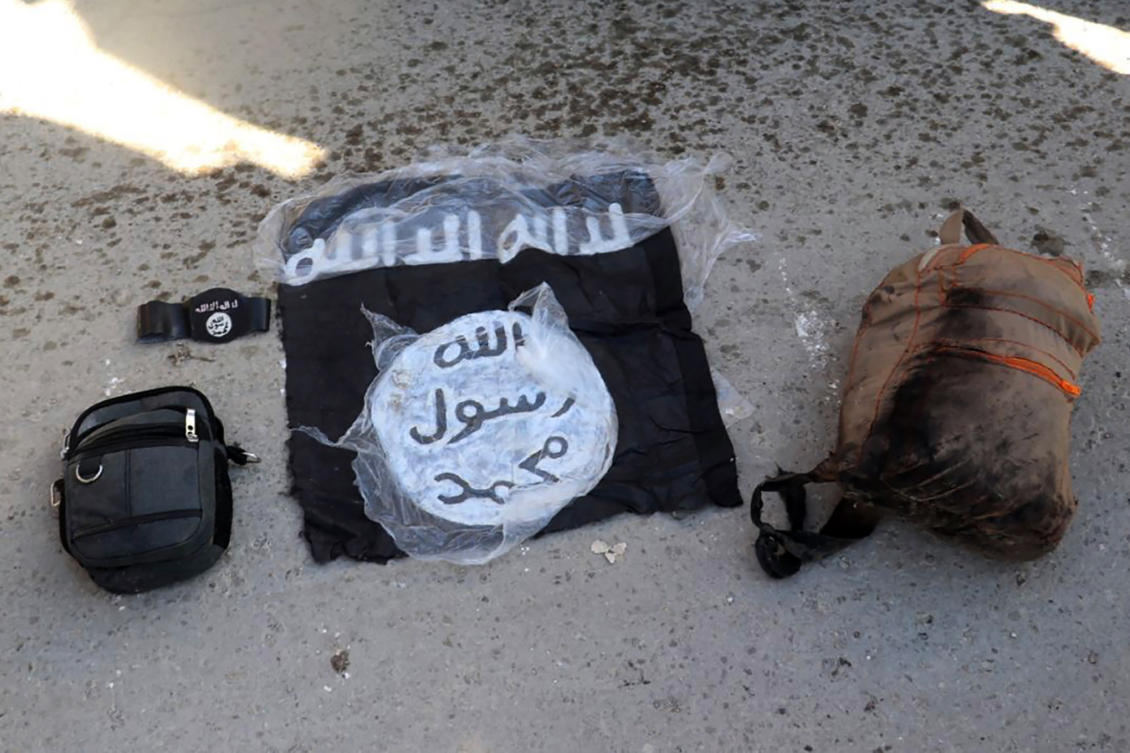Kuwait FM: Lebanon ‘should not be platform for aggression’
BEIRUT: Lebanon is a “place of hope” and “should not be a platform for aggression,” visiting Kuwait Foreign Minister Sheikh Ahmad Nasser Al-Mohammed Al-Sabah said on Sunday in Beirut.
On the second day of his visit to the capital, the minister renewed a commitment during separate meetings with Lebanese officials to a “Kuwaiti, Gulf, Arab and international message for Lebanon to not be a platform for any aggression, and for all borders to be controlled by the state.”
The minister met on Sunday with President Michel Aoun, Parliament Speaker Nabih Berri and Interior Minister Bassam Mawlawi.
After his talks with the Kuwaiti minister, Aoun stressed Lebanon’s “firm keenness to preserve the best relations with the Arab countries.”
The Kuwaiti minister held talks with Prime Minister Najib Mikati on Saturday night.
He also met Foreign Minister Abdullah Bou Habib, who is expected to visit Kuwait on Saturday.
Kuwait currently chairs the ministerial council of the Arab League.
Al-Sabah said that the visit was among various international efforts aimed at rebuilding confidence between Lebanon and the international arena.
The Kuwaiti minister’s statements had three central themes.
The first was a message of “sympathy, solidarity, synergy and love for the brotherly Lebanese people.”
Secondly, Al-Sabah urged Lebanese officials to adopt a position of neutrality and ensure that the country “will not be a platform for any aggression, while refraining from interfering in the internal affairs of Arab countries in general, and the Gulf in particular.”
His third message stressed a regional desire “to see a stable, secure and strong Lebanon by implementing international and Arab resolutions.”
Al-Sabah said that Lebanon “will review the messages I have conveyed to the Lebanese officials and … we will soon receive a response.”
Lebanon’s ties with Gulf states plunged into a new crisis in October after comments by former Lebanese information minister George Kordahi criticizing the conflict in Yemen.
Kuwait was one of several members of the Gulf Cooperation Council, including Saudi Arabia, that responded to Kordahi’s remarks by expelling the Lebanese ambassador and recalling its envoy to Beirut.
Aoun said in a tweet on Sunday that Lebanon was keen on maintaining “the best relations” with the Gulf states and that the Kuwaiti proposals would be discussed before an appropriate position was announced.
Some linked Al-Sabah’s visit to the return of former Prime Minister Saad Hariri to Lebanon, but the Kuwaiti minister denied such a link.
He stressed: “The visit has nothing to do with internal Lebanese affairs. We do not interfere in Lebanese affairs.”
Hariri will announce on Monday his final decision on whether or not he will run in upcoming parliamentary elections.
His media office said that the former premier will deliver a speech at 4 p.m. on Monday from his residence.
For the second day in a row, hundreds of Hariri supporters flocked outside his home in the capital, demanding that he run in the election.
Addressing his supporters, Hariri said: “I have listened to you today and I want you to listen to me tomorrow.
“I assure you that my blood is yours, and this house’s doors will always be open to receive you all.”
He told journalists: “Sometimes one has to take a step back in order to move forward.”
Supporters carried pictures of Hariri along with the Lebanese and Future Movement flags, chanting slogans in support of the former prime minister.
They calling on Hariri to rescind his decision to refrain from running for elections, asking him not to abandon his supporters.
“Hariri and the Future Movement are among the country’s main political symbols, and we will not accept their abandonment,” one supporter said.
His decision is expected to have profound repercussions on the electoral process and Lebanese politics at large.
In his Sunday sermon, Maronite Patriarch Bechara Boutros Al-Rahi reiterated the importance of Lebanon’s neutrality.
“However, it’s unfortunate that this concept is completely absent from the speeches of officials and Lebanon thus remains hostage to regional axes,” Al-Rahi added.
During his joint press conference on Sunday with the Lebanese interior minister, Al-Sabah said: “We discussed the issue of drug smuggling from Lebanon, and we appreciate what Lebanon is doing.”
He added: “We demanded mechanisms to ensure that shipments do not reach Kuwait and the rest of the region, and that Lebanese authorities should do this to restore confidence.
“There is a general desire for all Lebanese borders and outlets to be controlled by the state and for Lebanon to become more secure and stable.”
Mawlawi, Lebanon’s interior minister, said: “I reiterate the position of Lebanon and the Interior Ministry that rejects any verbal abuse of Kuwait. We discussed all issues related to border control and drug smuggling.”
A government source told Arab News: “The messages that Al-Sabah conveyed are the outcome of contact between France, Saudi Arabia and Kuwait, and they go in line with the principles contained in the Mikati government’s ministerial statement.”
The source added: “These messages will be discussed, and the Lebanese foreign minister will deliver Lebanon’s response during his visit to Kuwait.”
The source also commented on the possibility of Hezbollah ignoring these principles — as it has repeatedly done by insulting Gulf countries.
They said that the Lebanese government’s position “is the only one that matters, because it represents all of Lebanon.”
The government position is based on the ministerial statement that stresses Lebanon’s neutrality and insists on friendly relations with Arab and Gulf countries, the source added.

Lebanon to start virtual talks with IMF next weekLebanon’s PM to meet Kuwaiti foreign minister in Beirut



